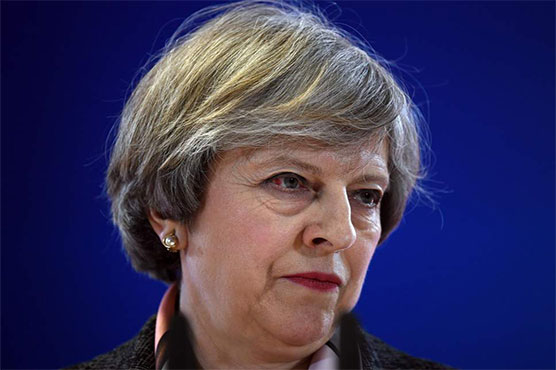British PM faces Brexit pressure ahead of Brussels talks

Theresa May gathers her new-look cabinet ahead of talks in Brussels on post-Brexit ties with the EU.
LONDON (AFP) - British Prime Minister Theresa May gathers her new-look cabinet Tuesday ahead of talks in Brussels on post-Brexit ties with the EU, facing fresh pressure from her Northern Irish allies.
The Conservative leader holds her first cabinet meeting since two ministers quit last week over a divorce deal with the European Union, raising fears the government might collapse.
Downing Street said May will travel to Brussels on Wednesday for talks with European Commission President Jean-Claude Juncker to discuss an outline agreement on future UK-EU trade ties after Brexit.
Commission spokesman Margaritis Schinas said the meeting was scheduled for 1630 GMT.
The British parliament is set to vote on both the divorce deal and the future relationship agreement next month.
Some Eurosceptic members of May s divided party say the exit agreement gives too much to Brussels and have tried to launch a leadership challenge, but have yet to muster the support needed for a no confidence vote.
Many more MPs still oppose the Brexit deal, however, including the Democratic Unionist Party (DUP), which props up May s government -- and which late Monday used a budget vote to flex its muscles.
The Northern Irish party abstained on three votes, despite their deal to support the Conservatives on finance matters, and even sided with the opposition Labour party on a fourth.
"We had to do something to show our displeasure," DUP Brexit spokesman Sammy Wilson told the BBC.
Without the support of the DUP s 10 MPs, the Conservatives have no majority in the Commons, the 650-seat parliamentary chamber which will have the final vote on the Brexit deal.
Conservative MP Jacob Rees-Mogg, a leading Brexiteer, said the government had made "a deliberate decision not to deliver a proper Brexit".
He said a decision on whether or not May would face a confidence vote would come "in due time".
This opposition raises the risk that Britain ends its four-decade membership with the EU on March 29, 2019, with no other arrangement in place.
Labour minister John Trickett said: "We no longer have a functioning government. With Brexit only a few months away, something has got to give."
In an editorial in the Belfast Telegraph, May sought to persuade Northern Ireland residents about the deal and warned about what would happen if it is voted down by parliament in a vote expected early next month.
She said it would put the British province "in a fantastic position for the future" and said it "preserves the integrity of our union".
"I am determined to do my job and deliver the best deal possible.
"It will then be time for MPs to do their job and to choose: move forward with this deal in the national interest, or go back to square one with all the chaos that would entail," she said.
The deal agreed with the EU last week covers Britain s financial settlement, expatriate citizens rights, and a 21-month post-Brexit transition period in which the two sides hope to agree a new trading relationship.
But the DUP and many Conservatives are outraged by the "backstop" plan that would keep Britain in the EU s customs union, and Northern Ireland in elements of the single market, if this trade deal is not ready by then.
This is intended as an insurance plan to keep the border open between Northern Ireland and EU member Ireland if and until the new trade arrangements resolve the issue.
The plan would mean Northern Ireland has closer economic ties with Ireland than mainland Britain.
The deal has won widespread backing from the business community, and Bank of England governor Mark Carney, addressing the issue on Tuesday for the first time since last week s draft deal, also welcomed the agreement.
He told MPs that the draft would support current forecasts based on "a smooth transition" for the British economy.
May will travel again to Brussels on Sunday alongside the other 27 EU leaders to sign off the Brexit deal.

